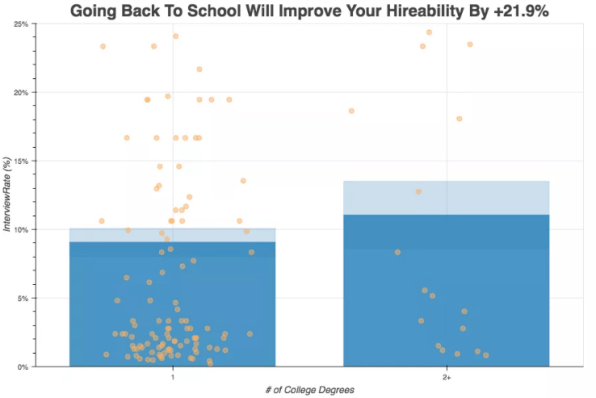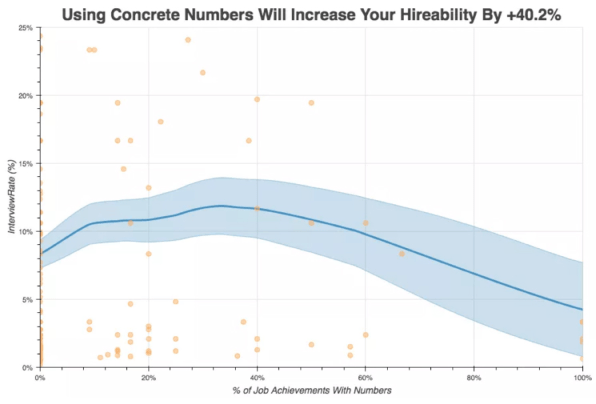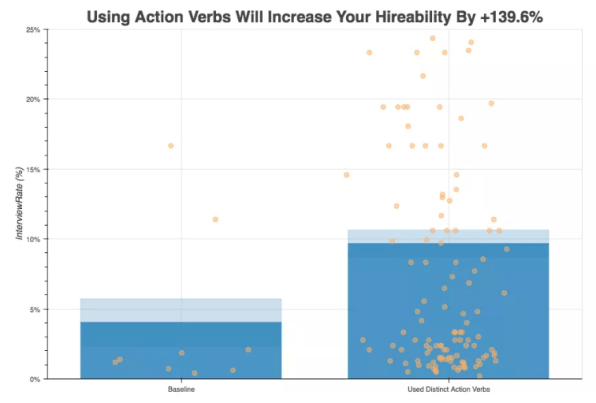Your #Career : These Are The Answers To Your Most Burning #JobSearch Questions…From How to Follow Up with #Recruiters to Getting through Applicant Tracking Systems, Here are some Common Questions that Arise During #JobHunts .
Looking for a job is complex. At each step you take–writing a resume, drafting a cover letter, networking, interviewing, negotiating your salary, and more–there are a million different questions you could ask.
While we can’t answer all of the questions in a single blog post (believe me, that wouldn’t be fun for you or me) we can attempt to address some of the more frequent questions that come up. After poring over Reddit, Quora, Google, and other sites, we drafted a list of some of the most commonly asked job search questions and reached out to career experts to find the answers. Here are the results.
1. I’VE SUBMITTED TONS OF APPLICATIONS, BUT I HAVEN’T HEARD BACK FROM ANYONE. WHAT AM I DOING WRONG?
When it comes to submitting job applications, it’s about quality, not quantity. If you’re not hearing back at all, you may want to think about whether you’re applying to the right jobs. There’s nothing wrong with aiming high, but if you don’t have the direct experience needed for the job you want, you may want to start thinking about applying to stepping-stone positions.
Another common culprit for getting the silent treatment? “The applicant probably hasn’t tailored their resume to the position and the key requirements posted for the position,” says John Singer, CEO of Professional Development Strategies.
“For each application, you should carefully read the job description and include and/or highlight specific skills and experiences you have that match what the company is looking for. Use the same language [fusion_builder_container hundred_percent=”yes” overflow=”visible”][fusion_builder_row][fusion_builder_column type=”1_1″ background_position=”left top” background_color=”” border_size=”” border_color=”” border_style=”solid” spacing=”yes” background_image=”” background_repeat=”no-repeat” padding=”” margin_top=”0px” margin_bottom=”0px” class=”” id=”” animation_type=”” animation_speed=”0.3″ animation_direction=”left” hide_on_mobile=”no” center_content=”no” min_height=”none”][as] the job description,” adds Aurora Meneghello, career coach and founder of Repurpose Your Purpose.
Other strategies to get your resume past the screening phase include finding somebody at the company to refer you, and making sure your resume is Applicant Tracking System, or ATS, compliant.
Like this Article ? Share It ! You now can easily enjoy/follow/share Today our Award Winning Articles/Blogs with Now Over 2.5 Million Growing Participates Worldwide in our various Social Media formats below:
FSC LinkedIn Network: www.linkedin.com/in/fscnetwork
Facebook: http://www.facebook.com/pages/First-Sun-Consulting-LLC-Outplacement-Services/213542315355343?sk=wall
Google+: https://plus.google.com/115673713231115398101/posts?hl=en
Twitter: Follow us @ firstsunllc
Question: Want the ‘the best/current articles/blogs on the web’ on Job Search, Resume, Advancing/Changing your Career, or simply Managing People?
Answer: Simply go to our FSC Career Blog below & type(#career, #leadership, #life) in Blog Search: https://www.firstsun.com/fsc-career-blog/
What Skill Sets do You have to be ‘Sharpened’ ?
Continue of article:
2. WILL APPLYING TO A JOB IN A DIFFERENT STATE HURT MY CHANCES OF GETTING HIRED?
It’s probably not what you want to hear, but the answer is, “It depends.” If a company doesn’t have the budget to accommodate relocation costs, or there are already plenty of qualified locals, they probably won’t be as open to interviewing out-of-state candidates. However, if you have a unique or hard-to-find set of skills and the company has a track record of hiring out-of-state applicants, your location may be no deterrent at all. Just make it clear that you’re willing to move.
“The best places to do this are in the cover letter and the summary/overview statement at the top of your resume,” says Adam Goulston, certified professional resume writer. And in all of your application materials, make it clear that you’re the best person for the job, regardless of location.
Related: Job Searching? Skip The Job Board And Take These Five Steps Instead
3. I NEED EXPERIENCE TO GET A JOB, BUT I NEED A JOB TO GET EXPERIENCE. WHAT CAN I DO?
It may be a bit of extra work, but you can definitely gain experience without being employed full-time in a particular field.
“Consider volunteering with nonprofits . . . sometimes volunteer gigs turn into paid jobs, and they are a good way to start your resume,” says Robyn L. Coburn, author and resume coach. You can also bulk up your resume through freelance work.
“People are often willing to take a chance on a less experienced freelancer for a one-time project, especially if it costs them less than hiring a bigger firm to complete the work,” says Jessie West of West Coaching and Consulting. Then, “you can use work completed for freelance clients to show your experience on your resume.”
Finally, there’s nothing wrong with a little good old-fashioned networking.
“Ask your family and friends, or community connections . . . if they can help you find an entry-level job in their companies,” Goulston adds. “Always express willingness to start at the bottom, work hard, and learn.”
4. HOW DO I GO FROM HAVING A GOOD RESUME TO HAVING A GREAT RESUME?
One difference between the two: A good resume shows what you did at your previous jobs, while a great resume shows the impact you had.
“Make sure the resume is filled with specific accomplishments and results you’ve delivered, quantified with numbers whenever possible,” says Kelly Donovan, principal of Kelly Donovan & Associates. One tried-and-true tactic is the STAR method, in which each bullet point lists the Situation you found yourself in, Task you were assigned, Action you took and Results of your initiatives. “However, be sure that the accomplishments and results are relevant to the job you’re going for–otherwise, your reader might be unimpressed by your examples,” Donovan cautions.
This speaks to a larger theme present in great resumes: customization.
“For each application, you should carefully read the job description and include and/or highlight specific skills and experiences you have that match what the company is looking for,” Meneghello says. This is especially important if the company uses an ATS. Speaking of which, you might be wondering . . .
Related: These Are The Mistakes That Even Experienced Job Seekers Keep Making
5. HOW CAN I MAKE SURE MY RESUME GETS PAST AN ATS?
“Every resume should be customized to the job by carefully examining the keywords in the listing, and adjusting your resume to reflect those,” Coburn says. “Always use the exact phrase they use,” because many ATSs filter out resumes that don’t contain enough relevant keywords.
It also helps to follow a few formatting guidelines so that the ATS can easily scan your resume. Try “keeping the font at 11 points or more; using one of the standard, highly readable fonts; and making sure the employment dates are justified to the right-hand margin on the page,” Coburn adds. “Bells and whistles like columns, shading, boxes, underlining, and multiple fonts only confuse the ATS.”
6. WHAT SKILLS ARE IMPRESSIVE TO HAVE ON A RESUME?
The skills recruiters are impressed by will largely vary based on the job you’re applying to. To identify the most in-demand skills in your field, look at a wide cross-section of job postings that you’re interested in and take notes on which ones appear most frequently. Recruiters may also like to see certain role-specific certifications.
There are a handful of skills, though, that are applicable to many different careers, and are worth including no matter what. A few examples: fluency in a foreign language, data analysis (especially in common platforms like Excel or Google Sheets), and project management and leadership (with concrete examples to back it up).
Related: Four Reasons Resumes No Longer Work
7. WHEN READING A RESUME, WHAT RED FLAGS DO RECRUITERS LOOK OUT FOR?
One of the easiest ways to get your application out of the running? Typos.
“There are so many people applying for the same job, a recruiter needs to be diligent,” says business writer Mary Walton. Often, “That means they’ll throw away any resume that’s not correctly proofread without even looking at the content.” So check, double check, and even triple check your resume to make sure it’s free of errors.
You’ll also want to be careful about including long gaps on your resume with no explanation.
“Some companies have stringent hiring practices that would clearly frown on gaps,” says Susan Ruhl, a managing partner at OI Partners-Innovative Career Consulting in Denver. “If there is a gap, recruiters/hiring managers tend to become a little suspicious and so they must be explained.”
Finally, many inconsistencies, exaggerations, or straight-up lies on your resume can easily be found by cross-checking with former employers, so don’t even think about it. If a recruiter can’t trust your resume, how are they supposed to trust you as an employee?
Another big no-no is coming across as too vague. If someone asks you an anecdotal question, such as, “How have you dealt with difficult colleagues?” you should give a specific example. Again, practicing your responses (yes, that means out loud) should help prepare you for this.
FastCompany.com | February 5, 2018 | BY EMILY MOORE—GLASSDOOR 6 MINUTE READ
[/fusion_builder_column][/fusion_builder_row][/fusion_builder_container]














